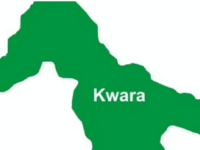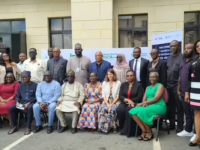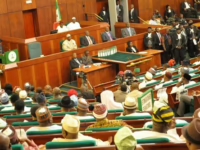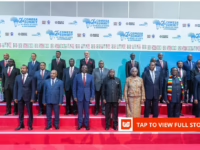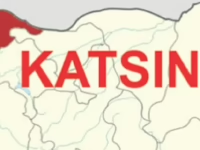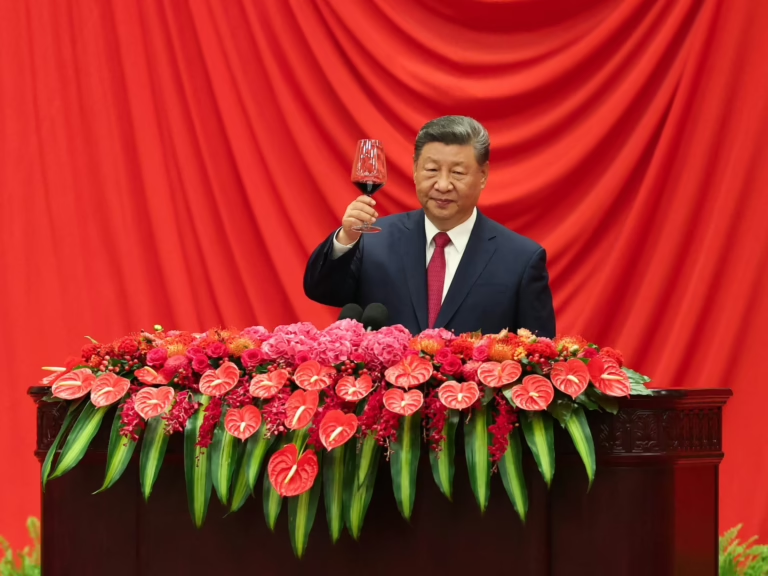On Thursday, China announced stricter export regulations targeting key rare-earth metals.
This development was revealed by the Chinese Ministry of Commerce ahead of a highly anticipated summit between Chinese President Xi Jinping and U.S. President Donald Trump scheduled for later this month.
The two economic giants have been engaged in ongoing trade discussions aimed at easing tensions following a series of reciprocal tariff hikes earlier this year, which were partially rolled back in subsequent negotiations.
Rare-earth elements remain a significant strategic asset for China in its economic and geopolitical dealings with the United States.
Details of China’s New Export Controls
In its “Announcement No. 61 of 2025,” China expanded export restrictions to include five additional rare-earth metals, supplementing the seven metals already regulated since April.
The newly added metals are holmium, erbium, thulium, europium, and ytterbium.
Previously restricted metals include samarium, gadolinium, terbium, dysprosium, lutetium, scandium, and yttrium.
Out of the 17 rare-earth elements-comprising 15 lanthanides plus scandium and yttrium-China now controls the export of 12.
Moreover, China has imposed export limitations on specialized equipment used in the processing and refinement of these metals, with most measures set to take effect from December 1.
Foreign enterprises seeking to export rare-earth magnets or semiconductor materials containing at least 0.1% heavy rare-earth metals from China must now secure explicit approval from Chinese authorities.
Applicants are required to provide detailed explanations regarding the intended applications of the products manufactured using these materials.
Why Has China Imposed These Stricter Controls?
China has justified the new export restrictions by citing concerns over national security.
A spokesperson from the Ministry of Commerce emphasized that rare-earth materials possess dual-use capabilities, serving both civilian industries and military applications, making export controls a common international practice.
The spokesperson further noted that certain foreign entities have been involved in transferring or processing Chinese-origin rare-earth materials for military or sensitive uses, either directly or indirectly.
Such activities, according to China, threaten its national security, disrupt global peace and stability, and undermine worldwide non-proliferation efforts.
Rare-earth metals are indispensable in manufacturing advanced technologies, including electric vehicles, lithium-ion batteries, LED displays, and high-precision camera lenses.
They are also critical to the U.S. defense sector. The Center for Strategic and International Studies (CSIS) highlights their use in producing F-35 fighter jets, Virginia and Columbia-class submarines, Tomahawk cruise missiles, radar systems, Predator drones, and precision-guided munitions.
Additionally, rare-earth elements are vital components in semiconductor fabrication, which underpins artificial intelligence (AI) technologies.
Why Is This Development Significant Now?
Experts view China’s move as a calculated strategic maneuver.
China dominates the global rare-earth market, accounting for at least 60% of mining and approximately 90% of processing worldwide, according to CSIS data from 2024.
The timing is notable, occurring just weeks before President Trump’s scheduled trip to South Korea for the Asia-Pacific Economic Cooperation (APEC) summit, where he is expected to meet President Xi Jinping-their first face-to-face encounter since 2019.
Earlier this year, Trump imposed tariffs of 145% on Chinese imports, prompting China to retaliate with 125% tariffs. Both sides later reduced these tariffs and agreed to a temporary truce, which has been extended multiple times amid ongoing negotiations, including recent talks in Spain.
By tightening controls on rare-earth exports-materials highly sought after by the U.S.-China is enhancing its bargaining position in these discussions.
Gracelin Baskaran, director of the CSIS Critical Minerals Security Program, pointed out that the U.S. defense sector faces significant challenges due to limited domestic production capacity to meet growing technological demands.
She warned that China’s export restrictions could accelerate its military advancements relative to the U.S., exacerbating existing vulnerabilities and widening the technological gap.
Baskaran added, “This action not only bolsters Beijing’s negotiating leverage but also undermines U.S. efforts to strengthen its industrial base amid rising tensions in the Indo-Pacific region.”
Most of the new export controls will come into force on December 1, 2025, leaving a window of nearly two and a half months for diplomatic engagement.
The Ministry of Commerce spokesperson reaffirmed China’s willingness to engage in bilateral and multilateral dialogues to promote compliant trade and maintain the security and stability of global supply chains.
Who Will Be Most Affected by These Restrictions?
The United States stands to be the most impacted by these new export controls.
In 2023, the U.S. was the largest importer of Chinese rare-earth metals and related products, with imports valued at $22.8 million, according to the Observatory of Economic Complexity (OEC). China’s total rare-earth exports that year reached $117 million.
Between 2020 and 2023, the U.S. sourced approximately 70% of its rare-earth compounds and metals from China, as reported by the U.S. Geological Survey.
Other significant importers include Hong Kong ($12.1 million), Russia ($12.2 million), and Japan ($9.42 million).
In 2022, the U.S. government, under President Joe Biden, imposed restrictions on China’s access to American semiconductor technologies. Some U.S. legislators have advocated for even stricter measures, fearing that China could replicate or independently develop advanced semiconductor capabilities, potentially surpassing the U.S. and gaining a military edge.
Are There Any Exceptions to These Export Controls?
Yes, certain exemptions apply.
The Ministry of Commerce spokesperson clarified that exports related to urgent medical needs, public health emergencies, or disaster relief efforts will not be subject to these new restrictions.





